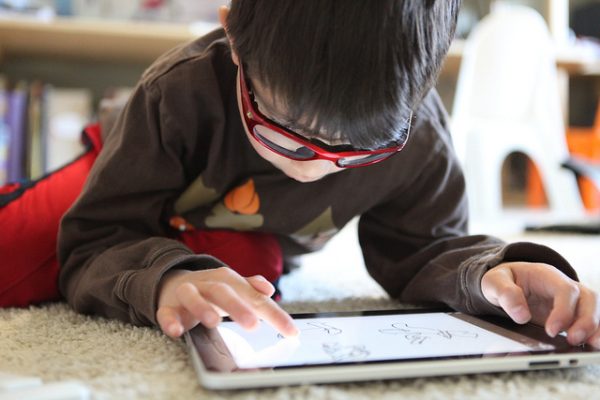Touchscreen News
Study: Toddlers Learning How to Use Touchscreens Early

Touchscreens aren’t used strictly by adults. Whether it’s a touchscreen monitor, tablet, smartphone or any other device, more and more toddlers are now learning how to use them at an early age. In addition to the vast entertainment value provided by touchscreens, a new study indicates that it could help teachers asses toddlers’ early skills.
For the study, researchers from Cork University Hospital in Ireland surveyed the families of 82 children, ranging in ages from 1 to 3, asking them a variety of questions regarding their use of tablets and other touchscreen devices. While it’s no secret that a large portion of the population has a touchscreen device, researchers were shocked to discover that 80% of parents surveyed confirmed that they had at least one touchscreen device inside their home. Furthermore, 9 out of 10 of these parents said they allow their toddlers to use the touchscreen device.
Researchers also found that roughly two thirds of parents had downloaded mobile apps on the touchscreen device specifically for their toddlers to use. Such apps may include learning games, interactive ebooks, and even streaming video apps like Netflix.
Among the most interesting findings of this study was that toddlers who use touchscreens for just 15 minutes per day could perform basic commands like screen swiping and unlocking by the age of 2. And one third of toddlers could perform more advanced touchscreen functions like taking a photo or recording video by the age of 29 months.
While the benefits of touchscreen devices among children seem apparent, some experts are reluctant to recommend it. The American Academy of Pediatrics (AAP), for instance, advises against the use of touchscreens in children younger than 2 years of age. As touchscreens evolve and become safer with more parental control restrictions, perhaps this will change.
“Watching some programs with your children allows parents to talk about the story lines and characters,” says Dr Amanda Gummer of FundamentallyChildren.com. “Apps can develop learning and some children find it easier to learn key skills through the personalised game-play that an app provides rather than in a classroom setting.”
This study was published in the journal Archives of Disease in Childhood.
